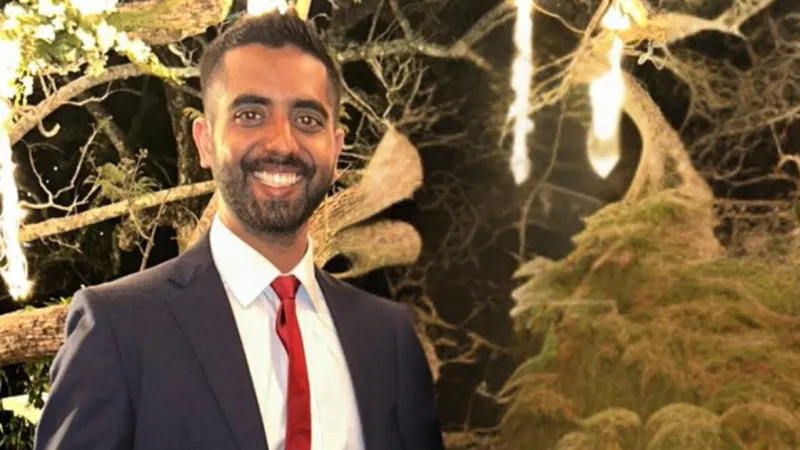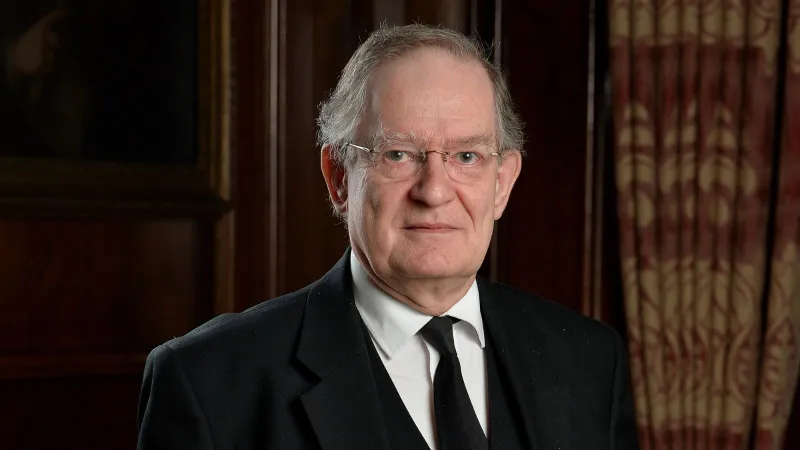
If you want something done, ask a busy person.
Brother Benjamin Franklin
This month, this year should not pass without remembering that 100 years ago, in August 1922, the Brethren of the Lodge of Honour and Friendship 1266 stood in silent tribute to the passing of their (To date) most famous son, Col Sir William Watts Knight of Grace of the Order of St. John of Jerusalem.
William Watts was born at Turnworth, Dorset on 6 February 1858. He was the eldest son of the magnificently named Vile Board Watts, a farmer of Melcombe and his wife, Elizabeth, the eldest daughter of Richard Caines.
William was a Freemason in a hurry, he was initiated in 1266 on 9th November 1886, passed on 11th January 1887, raised on 8th February that year and served as Worshipful Master in 1890.
William was not one to let the grass grow under his feet. He became a joining member of Hengist Lodge, No. 195, Bournemouth on 1 November 1894. In 1898 he resigned from 1266 and 195. He joined Quadratic Lodge, No. 1691, Hampton Court, Middlesex on 10 July 1899, where he resigned on 9th May 1914; St. Georges Lodge, No. 2537, Cape Town, South Africa on 14 November 1901, when he served in the second Boer War, where his last payment was made the following year.
He joined Elthome and Middlesex Lodge, No. 2094, London on 13th June 1904, his last payment being made the same year, and St. Cuthberga Lodge, No. 622, Wimborne, Dorset on 6th May 1917, where he served as Worshipful Master in 1917 and 1918.
When he wasn’t joining and resigning he was petitioning and serving as first Master. He started with St. Aldhelms Lodge, No. 2559, Branksome, Bournemouth, where the warrant was granted on 26th April 1895 and he served as Worshipful Master in 1895 and 1912; Earls Court Lodge, No. 2765, London, where the warrant was granted on 5th June 1899 and he served as Worshipful Master in 1903; Royal and Loyal Lodge, No. 2952, London, where the warrant was granted on 20 January 1903, serving as the inaugural Worshipful Master before his resignation in 1905; Powney Lodge, No. 3099, Lymington, Dorset where the warrant was granted on 1 March 1905 and he resigned in 1906; The Royal Crown Lodge, No. 3133, London, where the warrant was granted on 1 November 1905, serving as Worshipful Master in 1905, before his resignation in 1921; London Dorset Lodge, No. 3221, London, where the warrant was granted on 4 February 1907 and he served as the inaugural Worshipful Master; Old Shirburnian Lodge, No. 3304, London, where the warrant was granted on 10th April 1908 and he served as the inaugural Worshipful Master; Dorset Masters Lodge, No. 3366, Dorchester, Dorset where the warrant was granted on 20th March 1909 and he served as the inaugural Worshipful Master; Blackmore Vale Lodge, No. 3625, Sturminster Newton, Dorset, where the warrant was granted on 5th September 1912 and he served as the inaugural Worshipful Master, before resigning in 1921; Imperial Cadet Lodge, No. 3824, London where the warrant was granted on 30th November 1917, serving as the inaugural Worshipful Master, and Anglo-Brazilian Lodge, No. 3880, London where the warrant was granted on 22th July 1918, serving as the inaugural Worshipful Master before resigning in 1921.
William also served the Province of Dorset, as the Provincial Assistant Grand Director of Ceremonies in 1890, Provincial Senior Grand Warden in 1895 and Deputy Provincial Grand Master from 1909 until he passed in 1922.
He was appointed Junior Grand Deacon by the United Grand Lodge of England in 1907, notably before he was made Deputy Provincial Grand Master of Dorset.
Like all good Freemasons, William recognised the importance of the Royal Arch. He was exalted in St. Cuthberga Chapter, No. 622, Wimborne on 21th September 1888, where he served as First Principal in 1892. He became a joining member of Quadratic Chapter, No. 1691, Hampton Court on 24 July 1902, where he served as First Principal in 1903, before resigning in 1914; Military Chapter, No. 2621, London on 21th April 1911, where he served as First Principal in 1918, before resigning in 1922. He became a petitioner of Public Schools Chapter, No. 2233, London, where the warrant was granted on 5th May 1909 and he served as First Principal in 1912 and St. Aldhelm’s Chapter, No. 2559, Branksome, where the warrant was granted on 4 August 1920 and he served as the inaugural First Principal.
William Watts served as Provincial Grand Registrar of Dorset in 1895 and he was promoted to Most Excellent Grand Superintendent 1909, a post he held until he passed in 1922. He also served as Provincial Third Grand Principal of Middlesex in 1904. He was appointed Deputy Grand Sword Bearer by the Supreme Grand Chapter of Royal Arch Masons of England and Wales in 1907.
In his spare time, he was advanced into Mark Masonry in St. Cuthberga Lodge, No. 99, Wimborne in 1877, where he served as Worshipful Master in 1892, 1893 and 1905. He took the Royal Ark Mariner degree in 1910. He served as Provincial Grand Senior Warden of Dorset in 1894. He was appointed Grand Sword Bearer by the Grand Lodge of Mark Master Masons of England and Wales and its Districts and Lodges Overseas in 1905 and Provincial Grand Master for Dorset from 1916 until he passed in 1922.
In Ancient and Accepted Rite he was perfected in St. Leonard Chapter, No. 39, Blandford, Dorset in 1888, where he served as Most Wise Sovereign in 1892. He became a joining member of Vigne Chapter, No. 25, Bournemouth, where he served as Most Wise Sovereign in 1896. In Knights Templar he was installed in Hyde Preceptory, No. 98, Poole, Dorset in 1889, where he served as Eminent Preceptor in 1896 and 1906. He was also a member of Hyde Priory, Knights of Malta. He served as Provincial Great Standard Bearer in 1896 and he was promoted Provincial First Great Constable in 1903. He was appointed Great Herald by The Great Priory of the United Religious, Military and Masonic Orders of the Temple and St. John of Jerusalem, Palestine, Rhodes and Malta of England and Wales and its Provinces Overseas in 1913. He supported the Masonic charities and became a Vice-President of Royal Masonic Benevolent Institution, a Life Governor of the Royal Masonic Institution for Boys and the Royal Masonic Museum of Freemasonry on 24th December 1996.
In daylight hours, William was educated at Sherborne School, Dorset. He married Emily Annie, the daughter of Charles Henry Philips Flower, of France, Blandford, Dorset in 1883. He served as a Lieutenant in the 1st Volunteer Battalion, Dorset Rifle Volunteers before enlisting in the 3rd Battalion, the Welsh Regiment in 1885. He served in the Welsh Regiment for many years and was ultimately the Commanding Officer.
In South Africa, during the Boer War, 1899 to 1902, he raised and commanded the 1st and 2nd Battalions. Cape Peninsula Rifles and served as commandant of the districts of Kenhardt-Prieska and Wynberg. He was mentioned in despatches twice and was awarded the Queen Victoria and King Edward medals. At the conclusion of the War he returned to England and was placed in command of the 3rd Battalion, the Welsh Regiment. He became the Colonel of the 1st Cadet Battalion, King's Royal Rifle Corps. He also served as Colonel Commandant of the 1st Brigade of the City of London Military Cadets. He was installed as a Commander of the Order of the Bath (Military) in 1900 and as a Knight of the Order in 1910. He was awarded the Volunteer Officers’ Decoration in 1912.
In 1914 he raised and commanded the 13th (Service) Battalion Welsh Regiment and the 20th (Service) Battalion, Welsh Regiment with the temporary rank of Lieutenant-Colonel in 1915. He became a Knight of Grace of the Order of St. John of Jerusalem in 1900; a Vice-President of the Society of Dorset Men in London; a Justice of the Peace for Dorset; a Magistrate for Cape Colony; a Governor of Sherborne School and of the United Services College, Windsor, Berkshire; Chairman of the Militia Club, serving from 1907 to 1911 and Vice President of the League of Mercy.
In the English census he is recorded as living at Turnworth, Dorset with his father, a farmer with nine hundred and seventy-six acres, employing twenty-five labourers and five boys, his mother, brother and three servants in 1861; a student at Hendford Hall, Yeovil, Somerset in 1871; a farmer living at Tarrant Launceston, Dorset with his cousin and two servants in 1881; a farmer and Captain of the 3rd Welsh Regiment, living at Tarrant Launceston, Dorset with his wife, his wife’s companion and two servants in 1891 and a Colonel, a boarder at 62 Holland Road, Kensington, London, with his wife in 1911. By 1915 he was living at the Priory, Bournemouth, Dorset.
William never forgot his Mother Lodge. He cited it on a number of joining applications despite having resigned and he visited often in his various roles as a Dorset ruling Master and a Provincial Grand Officer.
I imagine the eulogy took a while...


